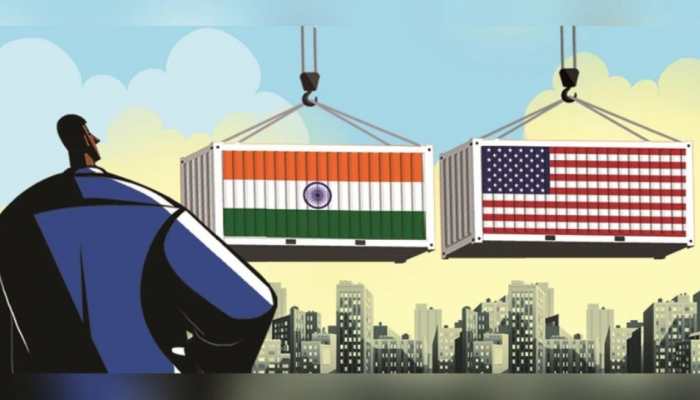No Entry For GM Crops, Says New Delhi; India-US Trade Talks Hit A Sacred Wall
While American negotiators have made agricultural access a central demand, pressing India for a wider entry gate for U.S. farm goods, New Delhi is not blinking, especially on GM imports.
Trending Photos
) Representational image
Representational imageNew Delhi: Genetically modified (GM) crops will not be crossing India’s borders anytime soon, no matter how urgently the United States knocks. As trade negotiations between New Delhi and Washington enter a crucial phase, insiders say one red line is not up for discussion.
“There are things that are not about negotiation. Some things are a matter of principle,” said a senior official close to the development.
That principle, sources say, is GM corn and soy. While American negotiators have made agricultural access a central demand, pressing India for a wider entry gate for U.S. farm goods, New Delhi is not blinking, especially on GM imports.
Over the years, the issue has mutated from a mere trade disagreement into a symbolic fight over sovereignty, food safety and grassroots politics.
The United States Trade Representative (USTR) has repeatedly flagged India’s restrictions on GM products, calling them “non-tariff barriers”. But Indian authorities remain unmoved, largely because of the hardline stance taken by domestic groups closely aligned with the ruling establishment.
Last month, the message from Sangh affiliates was if America insists on forcing GM crops into the Indian market, there may be no trade deal at all. Carried in Business Standard, that warning echoed the sentiments of influential groups such as the Bharatiya Kisan Sangh (BKS) and the Swadeshi Jagran Manch (SJM), which have long opposed agricultural concessions to Washington, particularly in sectors like dairy and GM crops.
Their argument? Food security. The BKS has often warned that allowing U.S. crops into India, especially without clear labelling or transparency, could sabotage domestic farming ecosystems and compromise health safety standards. On the other hand, the SJM sees this as a direct attack on economic self-reliance.
Meanwhile, the clock is ticking. U.S. officials have privately hinted at the urgency of the moment, pointing to a deadline set by President Donald Trump, who is seeking a revival of his trade agenda. Trump has marked August 1 as a red-letter day. If no interim deal is inked by then, India could be hit with reciprocal tariffs, potentially as high as 26 percent.
Indian trade negotiators are not indifferent to that pressure. But according to officials involved in the process, the sixth round of talks will only happen in the second half of August after Trump’s deadline expires. Any hope for a short-term resolution seems, at best, unrealistic.
As one official put it, “We are not looking at compromise in areas that touch the lives of millions.” In other words, GM corn is off the table. And perhaps, so is the deal, at least for now.
Stay informed on all the latest news, real-time breaking news updates, and follow all the important headlines in india news andworld News on Zee News.
Live Tv



)
)
)
)
)
)
)
)
)
)
)
)
)
)
